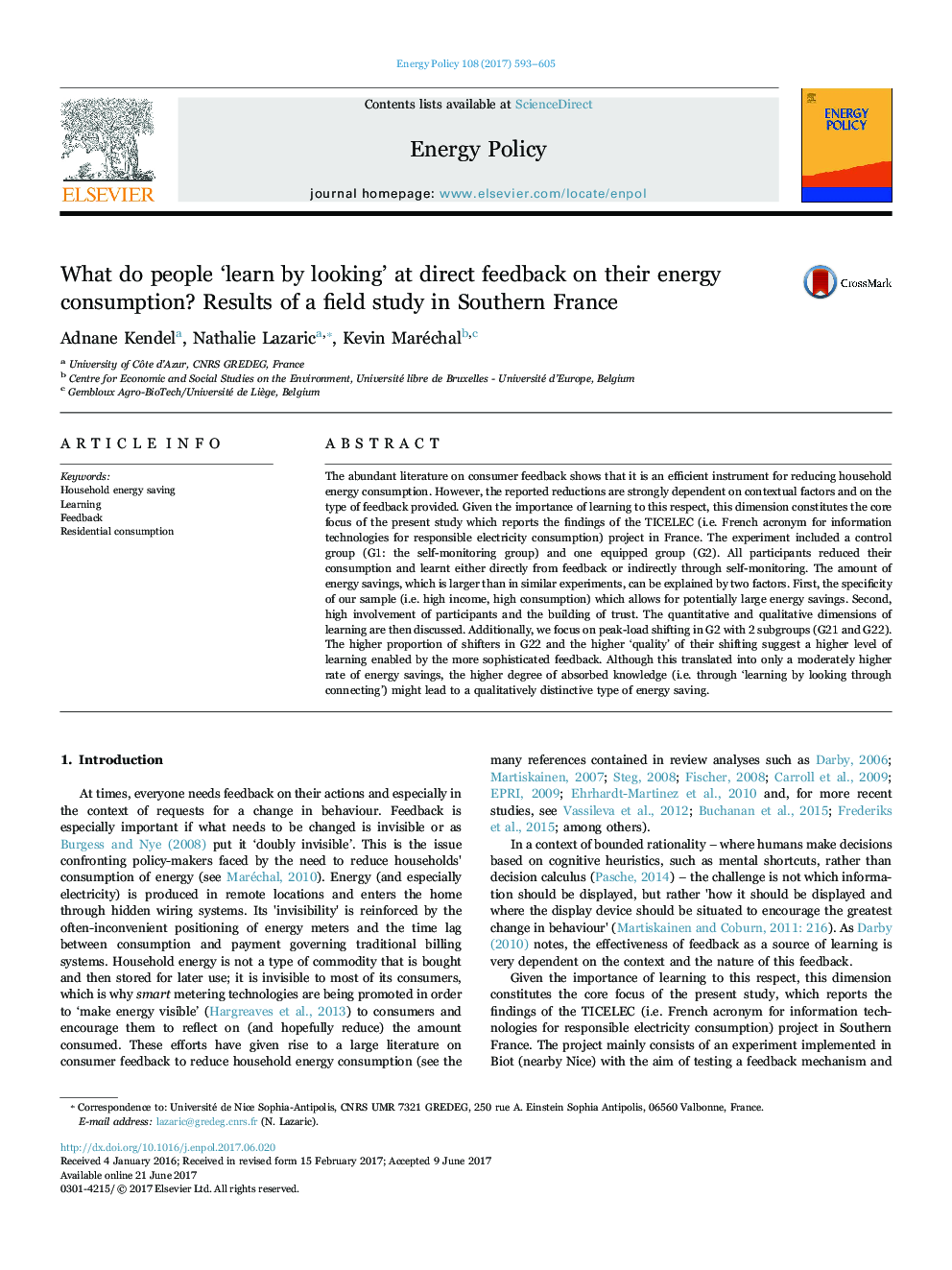| کد مقاله | کد نشریه | سال انتشار | مقاله انگلیسی | نسخه تمام متن |
|---|---|---|---|---|
| 5105628 | 1481250 | 2017 | 13 صفحه PDF | دانلود رایگان |
عنوان انگلیسی مقاله ISI
What do people 'learn by looking' at direct feedback on their energy consumption? Results of a field study in Southern France
ترجمه فارسی عنوان
مردم چه چیزی را با نگاه کردن به بازخورد مستقیم مصرف انرژی خود می آموزند؟ نتایج یک مطالعه میدانی در جنوب فرانسه
دانلود مقاله + سفارش ترجمه
دانلود مقاله ISI انگلیسی
رایگان برای ایرانیان
کلمات کلیدی
صرفه جویی در انرژی خانگی، یادگیری، بازخورد، مصرف مسکن،
موضوعات مرتبط
مهندسی و علوم پایه
مهندسی انرژی
مهندسی انرژی و فناوری های برق
چکیده انگلیسی
The abundant literature on consumer feedback shows that it is an efficient instrument for reducing household energy consumption. However, the reported reductions are strongly dependent on contextual factors and on the type of feedback provided. Given the importance of learning to this respect, this dimension constitutes the core focus of the present study which reports the findings of the TICELEC (i.e. French acronym for information technologies for responsible electricity consumption) project in France. The experiment included a control group (G1: the self-monitoring group) and one equipped group (G2). All participants reduced their consumption and learnt either directly from feedback or indirectly through self-monitoring. The amount of energy savings, which is larger than in similar experiments, can be explained by two factors. First, the specificity of our sample (i.e. high income, high consumption) which allows for potentially large energy savings. Second, high involvement of participants and the building of trust. The quantitative and qualitative dimensions of learning are then discussed. Additionally, we focus on peak-load shifting in G2 with 2 subgroups (G21 and G22). The higher proportion of shifters in G22 and the higher 'quality' of their shifting suggest a higher level of learning enabled by the more sophisticated feedback. Although this translated into only a moderately higher rate of energy savings, the higher degree of absorbed knowledge (i.e. through 'learning by looking through connecting') might lead to a qualitatively distinctive type of energy saving.
ناشر
Database: Elsevier - ScienceDirect (ساینس دایرکت)
Journal: Energy Policy - Volume 108, September 2017, Pages 593-605
Journal: Energy Policy - Volume 108, September 2017, Pages 593-605
نویسندگان
Adnane Kendel, Nathalie Lazaric, Kevin Maréchal,
